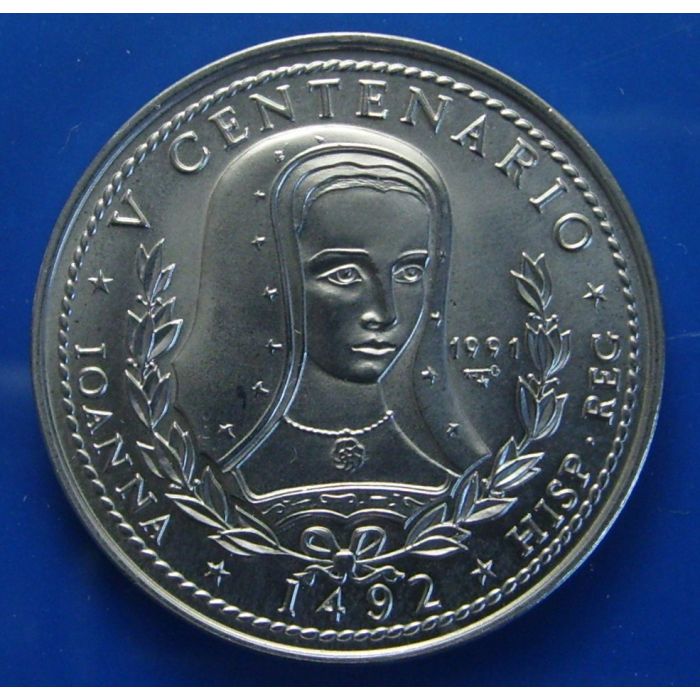Carib.C. Peso 1991 - Queen Joanna - Low mintage – unc
€14.00
In stock
SKU
cu0548
cu0548 Carib.C. Peso 1991 - Queen Joanna - Low mintage
| Catalog No. | KM# 366, JMA# AAEE436, N# 51450 |
|---|---|
| Send by Registered Mail | No |
| Value | Peso |
| Year | 1991 |
If you want to see, the picture of the backside, just mail to: collectitcoins@outlook.com
And ask for backside; Carib.C. 548
------------------------
Queen Joanna, daughter of the "Catholic King and Queen" of Spain, in fact was the first monarch of Spain, cause her father, Ferdinand was King of Aragon (and other reigns), and her mother, Isabella was Queen of Castile (and other reigns).
Her life was complicated, as, in spite of the strict religious style of her parents, she was reluctant to rites, and indifferent to religion in general.
Joanna was the third kid, so had few chances to inherit the kingdoms, but owing to the death of her elder siblings (John and Isabella), while living their parents, and her nephew Michael (son of Isabella), she became Queen of Castile upon the death of her mother, on 1504.
King Ferdinand declared his daughter as Queen of Castile. On 1506, Joanna husband (Philip, "the handsome") died, and a few later, on 1509, King Ferdinand, arguing mental problems of her, became regent for Castile, being Joanna confined at Tordesillas Royal Castle. After death of King Ferdinand, on 1516, Joanna's son Charles (seventeen years old at the moment), assumed as co-King to reign together with Joanna, but in fact, he managed to keep the queen confined, owing to alleged mental illness of Joanna, and became Charles I.
On 1520, a revolt gave freedom to Joanna, but on 1521 charles defeated the revolt, and took control again, confining in the castle his mother for the rest of her life.
Joanna shared her confinement with her youngest daughter Catalin, till she left to marry the portugal king on 1525.
Queen Joanna is known as "Joanna the mad", but recent findings tend to confirm the mental illness was the argument used first by her father, the King Ferdinand, and later by her son, King Charles to maintain the power of Spain. Is noticeably the lack of documentation of the period, investigators think such documentation was destroyed or hidden by the kings.

